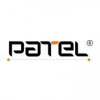Filter interviews by
Adani Infra Deputy Manager Interview Questions and Answers
Adani Infra Deputy Manager Interview Experiences
6 interviews found
(6 Questions)
- Q1. What is DPT in NDT process.
- Ans.
DPT stands for Dye Penetrant Testing in the Non-Destructive Testing (NDT) process.
DPT is a method used to detect surface-breaking defects in non-porous materials.
The process involves applying a liquid dye penetrant to the surface of the material, allowing it to seep into any cracks or defects.
After a certain dwell time, excess penetrant is removed and a developer is applied to draw out the penetrant from the defects, m...
- Q2. What are erection sequence
- Ans.
Erection sequence refers to the order in which components of a structure are assembled to ensure stability and safety.
Erection sequence typically starts with the foundation and then progresses to the structural frame.
Next, walls and floors are added followed by roof installation.
Finally, finishing touches such as windows, doors, and interior fittings are completed.
An example of erection sequence for a building would be...
- Q3. What is erection productivity in Structure
- Ans.
Erection productivity in structure refers to the efficiency and speed at which the construction of a building or infrastructure is completed.
Erection productivity is influenced by factors such as skilled labor availability, equipment efficiency, and project management.
Efficient planning and coordination among different teams can improve erection productivity.
Using prefabricated components can also help speed up the ere...
- Q4. What is erection tolerance for column
- Ans.
Erection tolerance for a column refers to the acceptable level of deviation from verticality or straightness.
Erection tolerance is typically specified in the project's design or construction documents.
Common erection tolerances for columns are around 1/500 to 1/1000 of the column height.
Tolerances may vary based on the material of the column and its intended use.
Erection tolerance ensures structural integrity and aesth...
- Q5. Which is codes is applicable for structure erection
- Ans.
Various codes are applicable for structure erection depending on the country and type of structure.
The International Building Code (IBC) is commonly used in the United States for structural requirements.
Eurocode is used in European countries for structural design and construction.
British Standards (BS) are also commonly used in the UK for structural engineering.
Local building codes and regulations may also apply depend...
- Q6. What is lift plan for erection
- Ans.
A lift plan for erection is a detailed plan outlining the process of safely lifting and placing heavy equipment or materials during construction.
Identify the weight and dimensions of the equipment or materials to be lifted
Determine the location for the lift and assess any obstacles or hazards
Select the appropriate lifting equipment such as cranes or hoists
Calculate the load capacity and ensure it does not exceed the eq...
How many manpower is required for complete the 500mt erection in one month.
(3 Questions)
- Q1. Why do u want to leave the ur current organisation
- Ans.
Seeking new challenges and growth opportunities in a larger organization.
Desire for career advancement
Looking for new challenges
Seeking opportunities for professional growth
Interested in a larger organization with more resources
Want to broaden my skill set
- Q2. What is your expected CTC
- Q3. Y we should provide that much amount
- Ans.
Providing the requested amount is essential for achieving strategic goals and ensuring operational efficiency.
Budget allocation aligns with our strategic objectives, ensuring resources are directed towards priority projects.
Investing in employee training enhances skills, leading to increased productivity and job satisfaction.
Funding for technology upgrades can streamline processes, reduce costs, and improve service del...
I applied via Approached by Company and was interviewed in Feb 2024. There was 1 interview round.
(5 Questions)
- Q1. Time period for complete turbine package with auxiliary and piping completion time.
- Q2. Complete process of Critical piping welding procedure of Main steam ,hrh line joints
- Ans.
The critical piping welding procedure for main steam and HRH line joints involves several steps to ensure proper joint integrity and safety.
Preparation of the welding area by cleaning and removing any contaminants
Selection of appropriate welding materials and techniques based on the specific requirements of the joint
Welding of the joint using approved procedures and qualified welders
Inspection of the weld to ensure it ...
- Q3. Commissioning process and time period
- Q4. Total number of manpower involved in different work fronts
- Q5. Alkali flushing and steam blowing procedure
- Ans.
Alkali flushing and steam blowing are procedures used to clean pipelines and equipment in power plants and industrial settings.
Alkali flushing involves circulating a solution of alkali through the pipelines to remove impurities and deposits.
Steam blowing uses high-pressure steam to remove any remaining debris and ensure the pipelines are clean and ready for operation.
Both procedures are essential for maintaining the ef...
Interview Preparation Tips
I appeared for an interview in Oct 2024, where I was asked the following questions.
- Q1. Asked about the technical background
- Q2. What is challenging facing at the site.
I appeared for an interview in Sep 2024, where I was asked the following questions.
- Q1. Based on our previous experience of our field
- Q2. Resume key points
I appeared for an interview before Mar 2024, where I was asked the following questions.
- Q1. What are your reasons for wanting to change your current situation?
- Ans.
I seek new challenges and opportunities for growth that align with my career aspirations and values.
Desire for professional growth: I want to take on more responsibilities and lead projects that can enhance my skills.
Alignment with career goals: My current role doesn't fully align with my long-term career aspirations in management.
Seeking a dynamic environment: I thrive in fast-paced settings, and I'm looking for a com...
- Q2. If you have observed your boss making a wrong decision, what actions can you take?
- Ans.
Addressing a boss's wrong decision requires tact, communication, and a focus on the team's goals.
Assess the situation: Understand the decision and its potential impact on the team and organization.
Gather evidence: Collect data or examples that support your perspective on why the decision may be wrong.
Choose the right time: Find an appropriate moment to discuss your concerns, ideally in a private setting.
Communicate res...
I applied via Referral and was interviewed before Feb 2022. There were 3 interview rounds.

(2 Questions)
- Q1. Piling work procedures in detail
- Ans.
Piling work involves driving piles into the ground to provide support for structures. The procedure includes several steps.
Site preparation and surveying
Pile installation using equipment such as pile drivers or hydraulic hammers
Testing and inspection of piles to ensure they meet design specifications
Cutting and capping of piles to finish the installation process
Backfilling and site restoration
Examples of piling work in...
- Q2. Concrete tests and material testing methods
(2 Questions)
- Q1. Tell me about yourself
- Q2. Salary expectations and joining period required
Interview Preparation Tips
Top trending discussions






Interview questions from similar companies

I applied via Approached by Company and was interviewed before Jul 2021. There were 2 interview rounds.

(2 Questions)
- Q1. Planning for execution and laying of bituminous
- Ans.
Planning for execution and laying of bituminous involves detailed scheduling, coordination, and quality control.
Develop a detailed project plan outlining tasks, timelines, and resources required
Coordinate with suppliers for timely delivery of materials
Ensure proper equipment and manpower are available for the execution
Implement quality control measures to ensure the final product meets specifications
Regularly monitor p...
- Q2. About bituminous laying
Interview Preparation Tips

Team Manager Interview Questions & Answers
CTS Consulting & Technical Supportposted on 10 Jan 2025
I applied via Approached by Company and was interviewed in Jul 2024. There were 4 interview rounds.
Office work in team management
Me one company manager in all my team handling in company work
Meri company ko meri puri team ka sahoyg milta he
(2 Questions)
- Q1. What is technical problems in company
- Ans.
Technical problems in a company can range from software bugs to hardware malfunctions.
Software bugs causing system crashes or errors
Hardware malfunctions leading to equipment failures
Network issues causing slow internet or connectivity problems
Outdated technology hindering productivity
Lack of IT support for troubleshooting and maintenance
- Q2. Kaya company me koyi aesa bhi problem ho skta he
Interview Preparation Tips

I appeared for an interview in Mar 2025, where I was asked the following questions.
- Q1. Technical civil
- Q2. Civil Quality cube test
Interview Preparation Tips

I appeared for an interview in Oct 2024, where I was asked the following questions.
- Q1. What are the basic principles of budget control?
- Ans.
Budget control involves planning, monitoring, and adjusting financial resources to achieve organizational goals effectively.
Establishing a budget: Create a detailed financial plan outlining expected revenues and expenses, e.g., annual departmental budgets.
Monitoring performance: Regularly compare actual financial performance against the budget to identify variances, e.g., monthly financial reports.
Variance analysis: In...
- Q2. What is the significance of the Building and Other Construction Workers (BOCW) Act in relation to minimum wages for laborers?
- Ans.
The BOCW Act ensures minimum wages and welfare for construction workers, promoting their rights and safety.
The BOCW Act mandates the payment of minimum wages to construction workers, ensuring fair compensation for their labor.
It establishes welfare measures such as health insurance, housing, and education for workers and their families.
The Act applies to various construction activities, including building, roads, and b...
- Q3. What is the difference between indirect costs and overhead costs?
- Ans.
Indirect costs are expenses not directly tied to a product, while overhead costs are ongoing business expenses.
Indirect costs are not directly attributable to a specific project or product, e.g., administrative salaries.
Overhead costs include all ongoing expenses to operate a business, e.g., rent, utilities.
All overhead costs are indirect costs, but not all indirect costs are overhead costs.
Examples of indirect costs: ...
Interview Preparation Tips
Adani Infra Interview FAQs
Tell us how to improve this page.
Adani Infra Interviews By Designations
- Adani Infra Deputy Manager Interview Questions
- Adani Infra Assistant Manager Interview Questions
- Adani Infra Senior Engineer Interview Questions
- Adani Infra Assistant Engineer - Civil Interview Questions
- Adani Infra Software Engineer Interview Questions
- Adani Infra Structural Engineer Interview Questions
- Adani Infra Quality Engineer Interview Questions
- Adani Infra Quality Manager Interview Questions
- Show more
Interview Questions for Popular Designations
Overall Interview Experience Rating
based on 6 interview experiences
Difficulty level
Duration
Interview Questions from Similar Companies
Adani Infra Deputy Manager Reviews and Ratings
based on 25 reviews
Rating in categories
|
Assistant Manager
152
salaries
| ₹6.4 L/yr - ₹15 L/yr |
|
Deputy Manager
88
salaries
| ₹9.5 L/yr - ₹19.3 L/yr |
|
Associate Manager
73
salaries
| ₹13.4 L/yr - ₹25 L/yr |
|
Senior Engineer
61
salaries
| ₹5 L/yr - ₹12 L/yr |
|
Manager
35
salaries
| ₹17 L/yr - ₹33 L/yr |

Patel Infrastructure

CTS Consulting & Technical Support

J K Fenner

Saudi Binladin Group
- Home >
- Interviews >
- Adani Infra Interview Questions














